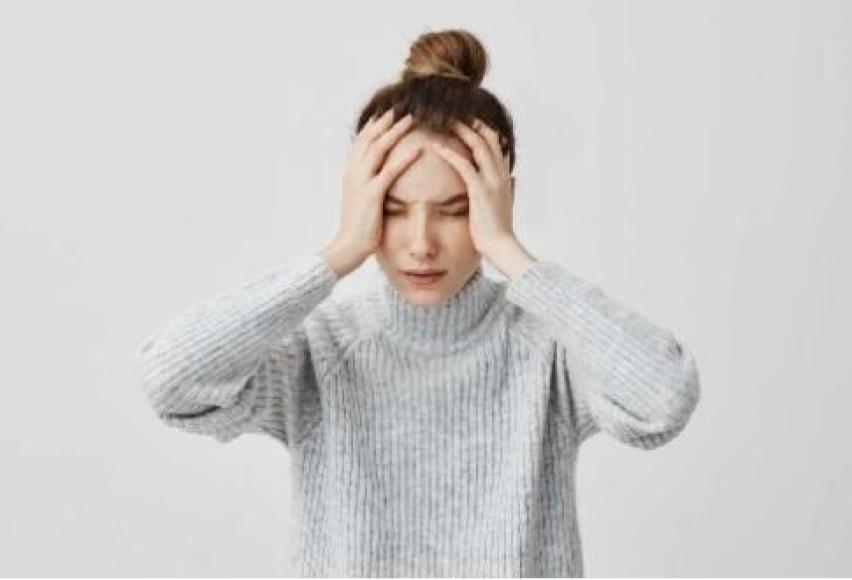Stress management techniques for skin pickers

Online test
Find out the severity of your symptoms with this free online test
Compulsive skin picking will often be carried out after the individual has experienced a high level of stress which has caused an ‘itch’ or ‘urge’ to carry out the behavior. The skin picking is often accompanied by a feeling of relief or even pleasure due to the reduction in anxiety/stress levels. However, once the damage has been done, those affected will often be left with a feeling of depression or hopelessness. Although the damage that is caused can be very severe, the gratification experienced can lead the individual to carry out compulsive picking again and again.
Skin picking is often associated with anxiety and stress, as it seems that there is a high correlation between people with skin picking and people who suffer from anxiety. An explanation to this might be the fact that people who are prone to picking usually are encouraged to pick when in states of stress, and anxiety does have a stressing effect on body and mind. This relation may be explained in the other direction as well, since a person suffering from skin picking feels insecure, often to the extent of regarding him/herself as a "abnormal" - a thought which by its nature is fearful and can lead to anxiety.
You can’t avoid all stress, nor would you want to. A little stress is actually a good thing. It temporarily boosts motivation and concentration, plus it keeps life interesting. But if you find yourself feeling overwhelmed, anxious, forgetful, or exhausted, you may be burdened with too much stress. And that can make you sick — 90% of all doctors’ visits are stress-related. Stress can make you unhappy, increasing your risk for anxiety and depression. There are many stress management techniques but some, like counseling or biofeedback, require a long-term commitment and you might not feel the effects for weeks. If stress is a problem for you right now, here are some things you can do today.
Tips and techniques for managing your stress
These techniques will not only have you feeling more relaxed within minutes, but they are powerful enough that regular practice can help you reduce your stress levels permanently.
Limit self-judgment
Talk kindly to yourself, turning off the “negative tape player.” Say things like “I am stressed and this will pass.” Reversing negative ideas and focusing on positive outcomes can help you to reduce tension and achieve goals. Reinforce positivity by writing and reading positive quotes or phrases and surrounding yourself with positive people.
Know and accept your limits
Are you taking a full course load, working part-time and involved in a lot of activities? Learning to say no is an important part of reducing stress and will help you focus on what’s really important.
Physical exercise to relieve stress
The physical benefits of exercise—improving physical condition and fighting disease—have long been established, and physicians always encourage staying physically active. Exercise is also considered vital for maintaining mental fitness, and it can reduce stress. Studies show that it is very effective at reducing fatigue, improving alertness and concentration, and at enhancing overall cognitive function. This can be especially helpful when stress has depleted your energy or ability to concentrate.

When stress affects the brain, with its many nerve connections, the rest of the body feels the impact as well. So it stands to reason that if your body feels better, so does your mind. Exercise and other physical activity produce endorphins—chemicals in the brain that act as natural painkillers—and also improve the ability to sleep, which in turn reduces stress. Meditation, acupuncture, massage therapy, even breathing deeply can cause your body to produce endorphins. And conventional wisdom holds that a workout of low to moderate intensity makes you feel energized and healthy.
Scientists have found that regular participation in aerobic exercise has been shown to decrease overall levels of tension, elevate and stabilize mood, improve sleep, and improve self-esteem. Even five minutes of aerobic exercise can stimulate anti-anxiety effects.
Diaphragmatic Breathing
Stress reduction doesn’t get any easier, or more fundamental, than learning how to breathe properly. When you’re under stress, your chest feels tight and your breathing becomes shallow and rapid. This is a hardwired response to danger that is supposed to be temporary. But most adults breathe this way all the time which unfortunately keeps us in a “flight or fight” mode. The most basic breathing exercise is to consciously breathe from your diaphragm. As you slowly inhale and exhale, concentrate on keeping your chest still while expanding and contracting your stomach. A few minutes of diaphragmatic breathing will lower levels of the stress hormone cortisol and stimulate the parasympathetic nervous system to evoke a state of calm.
Get a good night’s sleep

We need sleep to think clearly, react quickly and create memories. It’s well documented that students who regularly get a good night’s sleep perform significantly better than sleep-deprived students. REM sleep, most of which occurs towards the end of a full night’s sleep, is particularly important for consolidating newly learned information.
Make it a priority to do something low pressure and enjoyable
Get crafty (art, scrapbooking, writing/journaling), listen to music, get physical (walk, run, dance, do yoga), get outside, or just give yourself a few minutes off from what you are doing to do simply nothing. Don’t be afraid to take a break when you are studying or writing a paper. Schedule it in! A 20-minute power nap can re-energize you for hours and a brisk walk around the block can help to clear your head and put your thoughts in order.
Online test
Find out the severity of your symptoms with this free online test
Start your journey with SkinPick
Take control of your life and find freedom from skin picking through professional therapy and evidence-based behavioral techniques.
Start Now



